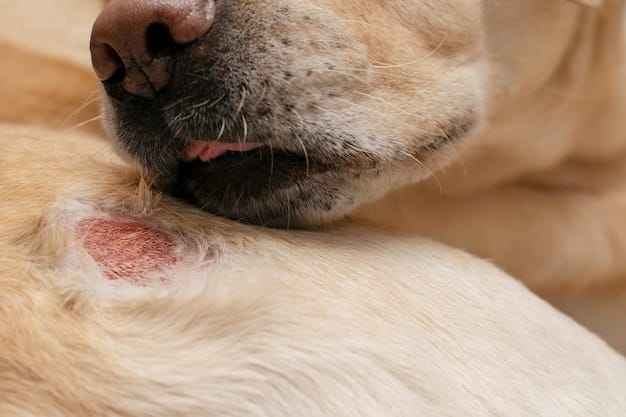
Ultimate Guide to Managing Dog Allergy: Solutions for Pet Owners
What You’ll Learn About Dog Allergy Solutions
By reading this article, you will learn: – Definition and triggers of dog allergies – Practical solutions for managing dog allergies – Key considerations for living with dog allergies

Definition and Triggers of Dog Allergies
Dog allergies are adverse reactions of the immune system to certain proteins found in a dog’s skin cells, urine, and saliva. Common triggers include dander, fur, and saliva. When people with allergies come into contact with these allergens, they may experience symptoms such as sneezing, coughing, itchy eyes, and skin rashes.
Importance of Finding Practical Solutions
For individuals with dog allergies, finding practical solutions is crucial for maintaining a healthy and comfortable living environment. It enables them to enjoy the companionship of a dog without compromising their well-being. It also prevents the need to rehome a beloved pet due to allergy-related issues, promoting a harmonious coexistence between humans and their furry companions.
Practical Solutions for Dog Allergies
Reducing Allergens at Home
To reduce allergens at home, regular and thorough cleaning, including vacuuming, dusting, and washing bedding, is essential. Investing in high-efficiency particulate air (HEPA) filters and air purifiers can also help remove allergens from the air.

Selecting Hypoallergenic Dog Breeds
Consider choosing a hypoallergenic dog breed, such as poodles, bichon frises, or Portuguese water dogs. These breeds produce fewer allergens, reducing the likelihood of triggering allergic reactions.
Real-Life Experience: Finding the Perfect Hypoallergenic Dog
Meeting Lisa and Her Allergy Journey
I recently met Lisa, a friend who had always dreamed of having a furry companion but struggled with severe dog allergies. Determined to find a solution, she researched extensively and discovered hypoallergenic dog breeds. After consulting with an allergist, Lisa decided to bring home a poodle, known for producing fewer allergens.
The Impact of a Hypoallergenic Dog
Since welcoming her poodle, Max, into her home, Lisa’s allergy symptoms have significantly improved. She has been able to enjoy the companionship of a dog without experiencing the usual allergic reactions. Seeing the positive impact of finding the right hypoallergenic breed has inspired Lisa to share her story with others facing similar challenges.
Understanding the Importance of Breed Selection
Lisa’s experience highlights the significant impact of selecting a hypoallergenic breed on managing dog allergies. It’s crucial for individuals with allergies to consider hypoallergenic options when choosing a pet, as it can make a remarkable difference in their quality of life.

Managing Allergies with Medication or Natural Remedies
Consulting with a healthcare professional is crucial for identifying suitable medications or natural remedies to manage dog allergies effectively. This may include antihistamines, nasal sprays, or natural supplements to alleviate symptoms.
Creating a Safe and Healthy Environment for Both Dog and Allergic Individual
Establishing designated dog-free zones within the home, such as bedrooms, can provide allergy sufferers with a refuge from allergens. Additionally, using washable pet beds and regularly bathing and grooming the dog can minimize allergen exposure.
Allergy-Friendly Grooming Practices
Adopting allergy-friendly grooming practices, such as frequent baths for the dog, can help reduce dander and allergens. Using hypoallergenic shampoos and grooming products can further minimize allergic reactions.
Key Considerations for Living with Dog Allergies
Understanding the Triggers and Setting Realistic Expectations
Understanding the specific triggers of dog allergies and setting realistic expectations regarding symptom management is crucial. Recognizing that complete elimination of allergens may not be achievable and that a combination of strategies is often necessary can help in coping with dog allergies more effectively.
Seeking Professional Advice and Support
Seeking advice from allergists, immunologists, or veterinarians can provide valuable insights into managing dog allergies. Professionals can offer personalized recommendations for medication, environmental modifications, and allergy-friendly pet care.
Incorporating Allergy-Friendly Diet for Dogs
Feeding dogs a balanced and allergy-friendly diet can contribute to their overall health and potentially reduce the production of allergens in their saliva and skin. Opting for high-quality, hypoallergenic dog food may help mitigate allergic reactions in sensitive individuals.
Conclusion
In conclusion, managing dog allergies is a multifaceted process that involves implementing practical solutions, understanding triggers, and seeking professional support. By reducing allergens at home, selecting hypoallergenic dog breeds, and incorporating allergy-friendly grooming practices, pet owners can create a safe and healthy environment for both their dog and allergic individuals. Understanding the importance of realistic expectations and seeking professional advice are vital components of effectively living with dog allergies.
FAQs
1. Can dog allergies be completely cured?
Dog allergies cannot be completely cured, but symptoms can be effectively managed through various strategies such as reducing allergens at home, selecting hypoallergenic dog breeds, and using medication or natural remedies.
2. Are there specific dog breeds that are better for people with allergies?
Yes, some hypoallergenic dog breeds produce fewer allergens and may be better suited for individuals with dog allergies. Examples include poodles, bichon frises, and Portuguese water dogs.
3. How often should I groom my dog to reduce allergens?
Regular grooming, including bathing, brushing, and using hypoallergenic grooming products, can help reduce allergens. The frequency of grooming may vary based on the dog’s breed and individual needs.
4. Can allergy-friendly diets for dogs help with dog allergies in humans?
While allergy-friendly diets for dogs may contribute to overall health and reduce the production of allergens in their saliva and skin, they may not directly impact dog allergies in humans.
5. Are there natural remedies for managing dog allergies?
Some natural remedies, such as saline nasal rinses and steam inhalation, may provide relief from certain allergy symptoms. However, it’s important to consult with a healthcare professional before using natural remedies for managing dog allergies.
Facebook
Pinterest
Twitter
LinkedIn

